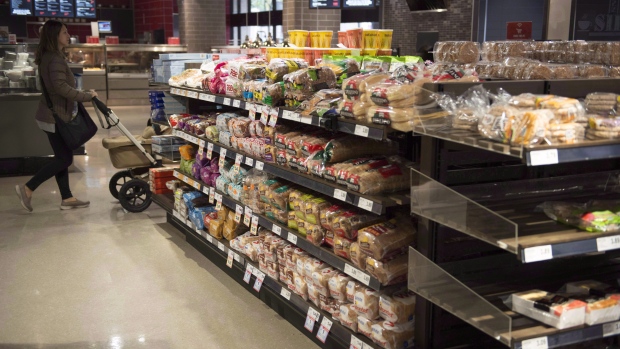Sep 12, 2019
Supreme Court won't consider unmasking witnesses in bread price-fixing case
The Canadian Press

OTTAWA -- The Supreme Court of Canada will not hear an appeal of a lower court decision that kept the identities of a pair of key witnesses in the Competition Bureau's bread price-fixing investigation confidential.
Grocery retailers Sobeys Inc. and Metro Inc. had sought the disclosure of the identities of witnesses, however the Ontario Superior Court ruled the witnesses were protected by confidential informer status.
As is usual, the Supreme Court gave no detailed reasons for its decision.
The top court's decision comes as the federal competition watchdog continues to investigate bread price-fixing, where the country's largest bakery wholesalers and grocers allegedly conspired to artificially bake at least $1.50 into the food staple's price tag.
The price-fixing allegedly took place from 2001 up until as far as November 2017, according to an affidavit filed in late 2017 but unsealed in early 2018.
The pattern of price fixing became known as the 7/10 convention, with an average seven cents price increase at wholesale and 10 cents price bump for the consumer in stores, resulting in an average margin increase of three cents per loaf for retailers, the documents showed.
Prices were fixed on a variety of baked goods, including bread, buns, bagels, naan, English muffins and tortillas.
The scandal came to light after grocery giant Loblaw Companies Ltd. and its parent company George Weston Ltd. came forward and admitted to participating the price-fixing arrangement, and implicated its competitors Walmart, Sobeys, Metro and Giant Tiger. Loblaw and George Weston received immunity in exchange for their co-operation.
The watchdog said in the court documents that it was approached by informants from Loblaw in 2015.
The Competition Bureau executed search warrants at the offices of a number of grocers in 2017 as part of its probe.
Canada's Competition Act prohibits agreements between two or more persons to prevent or lessen competition, and agreements between competitors to fix prices are considered to be "hard-core" cartel activities.
Penalties for price-fixing include fines up to $25 million, imprisonment to a maximum term of fourteen years, or both.




